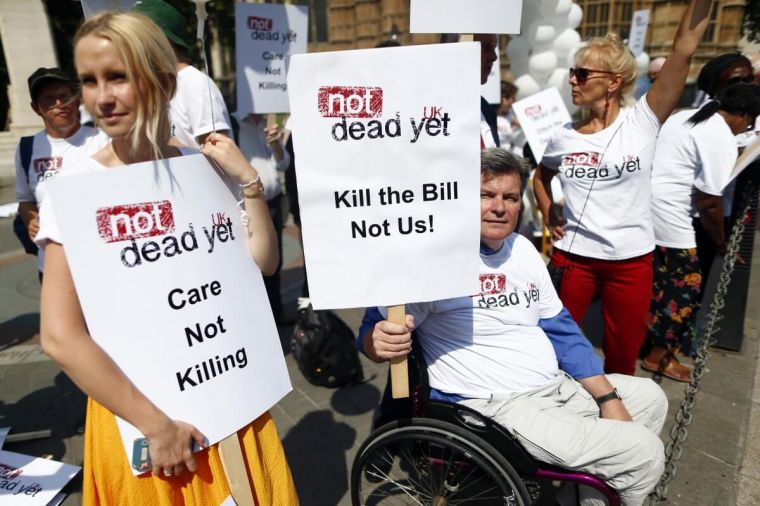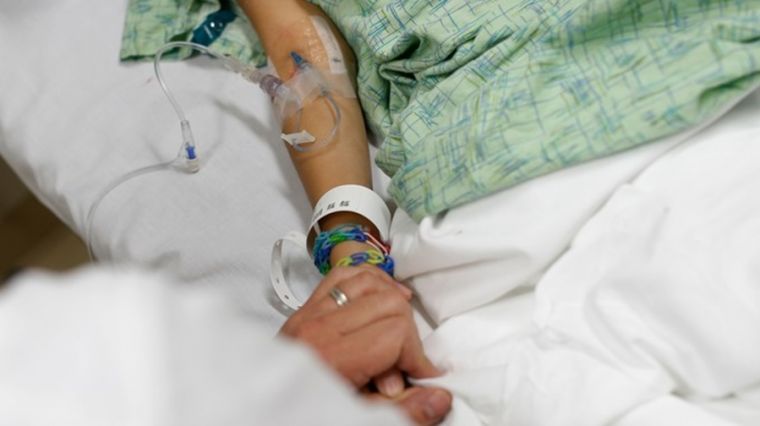The 'right thing to do'? Guernsey debates assisted dying as California court rules against 2015 legalisation
There was a potential victory as well as, on this side of the Atlantic, a blow for opponents of assisted suicide this week.
A judge in California has ruled that the state's assisted suicide law was wrongly passed in a special legislative session in 2015.
Judge Daniel Ottolia of the Riverside County Superior Court ruled that lawmakers had unconstitutionally passed the law in a 2015 special session of the legislature dedicated to health care funding, the Catholic News Agency reported. The judge has postponed judgment for five days to allow the state to file an emergency appeal.

Meanwhile, Guernsey's chief minister has called for some terminally-ill people to be given access to assisted dying as he opened a debate that could pave the way for euthanasia being legalised on the island, saying it is 'the right thing to do'.
Gavin St Pier called for Guernsey to follow the example of US states such as Oregon, where adults with mental capacity and who have only six months to live are able to opt for assisted dying.
The debate in the 40-strong parliament, called the States of Deliberation, could result in a detailed consultation being carried out. If the bill passes into law, the Channel island would become the only place in the British Isles to legalise assisted dying.
The Guardian reported that there were demonstrations from groups both in favour of and against assisted dying at the start of the debate, which continued today and could carry on into tomorrow.
According to the newspaper, there were howls of protest from supporters of assisted dying when one member of the parliament, deputy Jan Kuttelwascher, confronted them, saying: 'If you want to kill yourself you can do so now. I just don't agree with the idea of involving a third party, who happens to be a medical practitioner.' He added: 'There's a number of people I'd love to assist in dying, but they'd object.'
Starting the debate, St Pier said: 'We have medicalised the dying process. Very few of us will experience a natural death. Most of us will have a managed death. In most cases there will be a point in which healthcare providers will make key decisions on our behalf with or without prior input from our families or ourselves. One of those decisions may have an impact on the time of our deaths.'
He added: 'It is often said that this is an immensely complex moral, ethical and legal issue. But at its heart is a very simple principle – that of autonomy and the right to self-determination.'
If euthanasia is made legal in Guernsey, the move could reignite the debate in the UK, three years after Westminster MPs decisively rejected a bill that would have allowed doctors to help terminally-ill people end their lives.
Similar legislation to that in Oregon has been passed in six other US states, including California, as well as in Canada and the Australian state of Victoria.
New Zealand is considering legislation. The Netherlands, Belgium and Luxembourg have more permissive laws, based on applicants' suffering but not requiring a terminal diagnosis.

Opposition to the proposal on the island has been led by churches, the British Medical Association (BMA) and the Guernsey Disabilities Alliance.
In March, the Catholic bishop of Portsmouth, Philip Egan, sent a letter to be read out in Catholic churches, saying: 'Let there be no death clinics in Guernsey. I appeal to Catholics to mobilise. Speak out against this proposal. It is never permissible to do good by an evil means.'
Separately, an open letter from 53 Christian ministers and officials in Guernsey also opposed the proposal, saying it was 'seen as a threat by people living with various disabilities, vulnerable people and ultimately, perhaps, by all of us, as we approach the end of our lives. Every life is a gift that is precious and worthy of defence. Living life in all its fullness will include darker times, pain and sorrow. This is part of the rich diversity and tapestry of life that also provides opportunities for care, generosity, kindness and selfless love.'
As events in California and Guernsey show, this debate is live and unlikely to go away.











